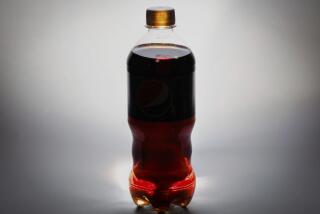If your weight-loss plan depends on saccharin, you’re in trouble
- Share via
Let’s hope that resolution to shed excess pounds doesn’t rely too heavily on saccharin-sweetened food. If it does, you might want to rethink your approach to dieting -- but not necessarily because saccharin is going to do you harm.
The belief that saccharin is risky has persisted for decades now. That is, it’s persisted outside the Food and Drug Administration and the Environmental Protection Agency, both of which have offered up figurative “to your health” toasts with the stuff. The former has declared it safe for human consumption; the latter has removed the sweetener from its list of hazardous substances.
This recent Nutrition Lab article, Saccharin’s mostly sweet following, from the L.A. Times offers a close look at the science, not just the hyperbole, on saccharin (and an interesting side note on the composition of rat, as opposed to human, urine).
Related: A history of saccharin
The story doesn’t put nails in any fear-of-saccharin coffins, but it does ultimately, and wisely, raise questions about the type of foods we consume.
If weight loss is the goal -- and for many people this time of year, it is -- perhaps how those treats are sweetened is beside the point.
Related: A reversal on carbs
